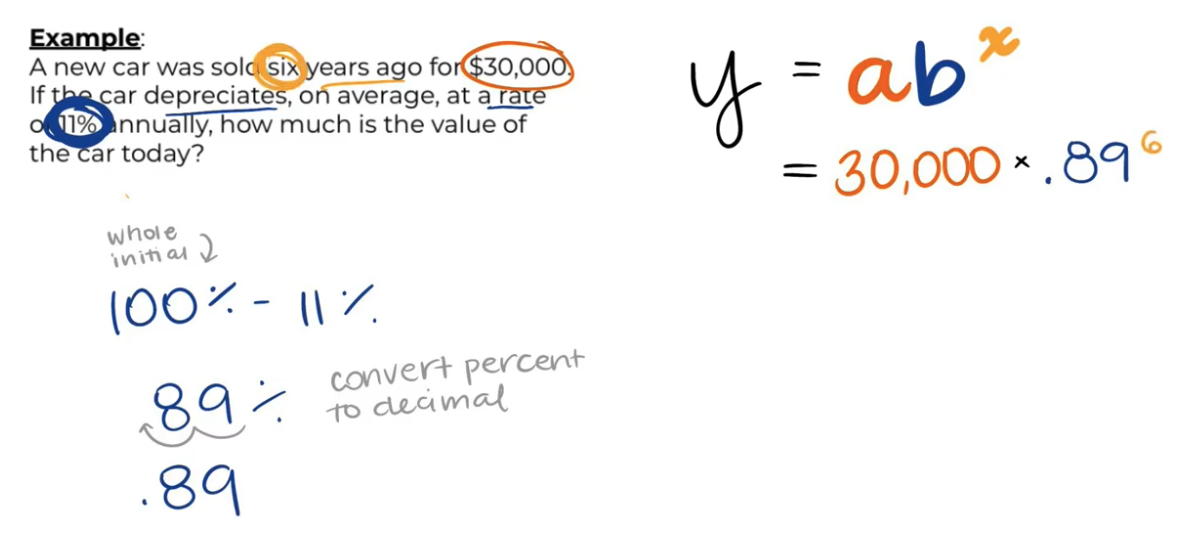Math Monday: A Real-World Application of Exponential Decay
It's hard to make exponential decay relevant. There are only so many times you can talk about the half-lives of radioactive isotopes. Explore two activities about the depreciation of a car's value over time.
MATH: Depreciation of Car Value
A car is a big purchase! What happens to its value over time?
In this activity, students use the exponential decay formula to model how a car's value decreases over time. It includes:
- Model Problems: An Edpuzzle video and example problem walk through how to evaluate word problems with exponential decay, including calculating decay rate.
- Practice: Students solve similar word problems independently
- Reflection: Students sketch a graph of car value over time.

APPLICATION: Exponential Change in Investments and Cars
Students write exponential functions at three levels:
- Level 1: Complete a table of values and answer questions about graphs of exponential decay
- Level 2: Write exponential growth functions and graph them using Desmos or by hand
- Level 3: Write and graph exponential equations, exploring the impact of changing the exponent
Building Engagement and Conceptual Understanding
Here are some fun activities to differentiate and deepen the math learning:
- CREATE: Exponential Patterns Jigsaw
Explore exponential change through visual patterns - APPLICATION: Investment Growth and Exponential Equations
Analyze growth and decay in this differentiated problem set - The Decay Curve of Twizzlers
Model decay by repeatedly cutting Twizzlers in half to form an exponential decay curve. Here’s the student-facing worksheet (shared by the Thomas R. Brown Foundation) - Predicting Movie Ticket Prices
Model movie prices over time through this interactive Desmos Classroom activity about inflation - Marbleslides: Exponentials
To win this game, you'll need to understand how exponential equations connect to their graphs
.png)
Extend the Personal Finance Learning
Learn more about the personal finance content and continue making real-world connections in math:
- Buying a Car Mini-Unit
- ANALYZE: Understanding Inflation
- MOVE: Inflation Over Time
- FinCap Friday: Deals on Wheels
- FinCap Friday: Selling Like Hot Brakes
- Question of the Day: What is the average price of a new car?
About the Author
Kathryn Dawson
Kathryn (she/her) is excited to join the NGPF team after 9 years of experience in education as a mentor, tutor, and special education teacher. She is a graduate of Cornell University with a degree in policy analysis and management and has a master's degree in education from Brooklyn College. Kathryn is looking forward to bringing her passion for accessibility and educational justice into curriculum design at NGPF. During her free time, Kathryn loves embarking on cooking projects, walking around her Seattle neighborhood with her dog, or lounging in a hammock with a book.
SEARCH FOR CONTENT
Subscribe to the blog
Join the more than 11,000 teachers who get the NGPF daily blog delivered to their inbox:









